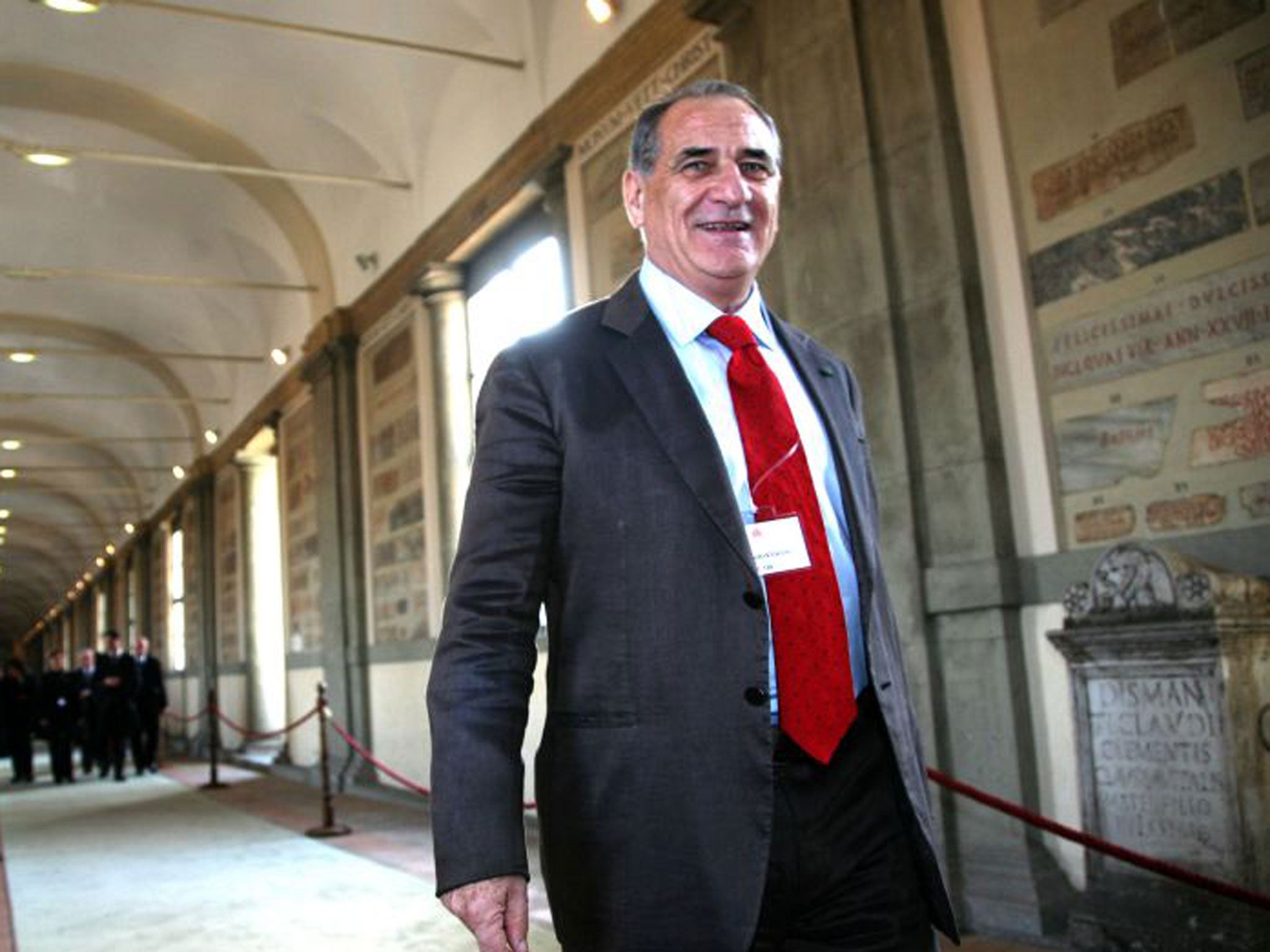Vincenzo Cerami Screenwriter best known for co-scripting ‘Life is Beautiful’
Pasolini was his schoolteacher and then his collaborator. ‘I owe everything to him,’ he said

Your support helps us to tell the story
From reproductive rights to climate change to Big Tech, The Independent is on the ground when the story is developing. Whether it's investigating the financials of Elon Musk's pro-Trump PAC or producing our latest documentary, 'The A Word', which shines a light on the American women fighting for reproductive rights, we know how important it is to parse out the facts from the messaging.
At such a critical moment in US history, we need reporters on the ground. Your donation allows us to keep sending journalists to speak to both sides of the story.
The Independent is trusted by Americans across the entire political spectrum. And unlike many other quality news outlets, we choose not to lock Americans out of our reporting and analysis with paywalls. We believe quality journalism should be available to everyone, paid for by those who can afford it.
Your support makes all the difference.A protégé of Pier Paolo Pasolini, the revered Italian writer and director, Vincenzo Cerami was a poet, novelist and playwright who wrote or co-wrote the screenplays of more than 40 films. But by far his greatest success came with Life Is Beautiful, Roberto Benigni’s tragicomedy about a father’s quest to save his son’s life and innocence amid the horrors of a Nazi concentration camp.
Few viewers of the 1999 Oscars ceremony could forget the sight of Benigni, the film’s director and star, exuberantly clambering over theatre seats to collect the Academy Award for best foreign language film. Benigni won the award for best actor; he and Cerami were nominated for best original screenplay. Of Cerami’s numerous collaborations with Benigni, Life Is Beautiful was the most daring. It presented tender romance, slapstick and the image, however brief, of a mountain of corpses – victims of Nazi slaughter.
Cerami and Benigni began discussing the film in the mid-1990s. Benigni wanted to express his comedy in an “extreme situation.” He could not imagine an environment more extreme than a concentration camp. His father had been in a Nazi camp and, to protect his children, had related his experience with humour. “I said to Roberto, ‘Strange – gaiety in a concentration camp?’ “ Cerami recalled. “But his father told his tales with a smile, because he couldn’t bear the misery and the nightmares and the memories.”
Life Is Beautiful introduces Benigni as Guido, a guileless sweetheart in love with Dora, an upper-crust signorina he greets as principessa (played by Nicoletta Braschi, Benigni’s wife). Amid the rise of Fascism they marry and have a son, Giosue, played by Giorgio Cantarini. Guido, who is Jewish, is forced to explain to the boy the antisemitism in their town.
When Giosue sees a sign declaring “No Jews or Dogs Allowed,” Guido suggests that at their family’s book shop they ban spiders and Visigoths. When the family is deported, Guido hides his son in the men’s barracks and convinces him that they have come to the concentration camp to compete in a game in which the prize would be a life-sized armoured tank.
“Points are lost three ways,” Guido announces before his wide-eyed boy and incredulous fellow inmates. “One, if you cry. Two, if you want to see your mama. Three, if you’re hungry and want a snack.” Guido maintains the elaborate deception to the end.
Critics were divided. “It dares to laugh in the face of the unthinkable,” Janet Maslin wrote in The New York Times. “And because Mr Benigni can be heart-rending without a trace of the maudlin, it works.” In Time magazine, meanwhile, Richard Schickel wrote: “Sentimentality is a kind of fascism too, robbing us of judgment and moral acuity, and it needs to be resisted. Life Is Beautiful is a good place to start.”
Cerami said of the film, “In cinema, in art, people can’t watch more than 10 minutes of evil because in the end it becomes horror. You have to seek the beauty and the horror.”
Cerami was born in Rome in 1940, making him about the same age as the fictional Giosue. His schoolteachers included Pasolini, before Pasolini became renowned as an intellectual and giant of world cinema. Cerami studied physics before becoming an apprentice to his old teacher, rising to be assistant director of works including The Hawks and the Sparrows (1966). “I owe everything to Pasolini,” he said. “Without him I wouldn’t have been able to look at the world with pity and severity combined.”
Cerami’s first novel, An Average Little Man (1976), was adapted for the screen by Mario Monicelli and vaulted Cerami to international attention. His early work with Benigni included The Little Devil (1988) and the popular comedy Johnny Stecchino (1991). More recently, they worked together on Pinocchio (2002), an adaptation of Carlo Collodi’s fairy tale, and The Tiger and the Snow (2005) , a love story set partly in war-torn Iraq.
His first marriage, to the American actress Mimsy Farmer, ended in divorce. Survivors include his wife, Graziella Chiarcossi; a daughter from his first marriage, the actress Aisha Cerami; and a son from his second marriage, the film director Matteo Cerami.
Vincenzo Cerami, screenwriter: born Rome 2 November 1940; married firstly Mimsy Farmer (marriage dissolved; one daughter), secondly Graziella Chiarcossi (one son); died Rome 17 July 2013.
Join our commenting forum
Join thought-provoking conversations, follow other Independent readers and see their replies
Comments